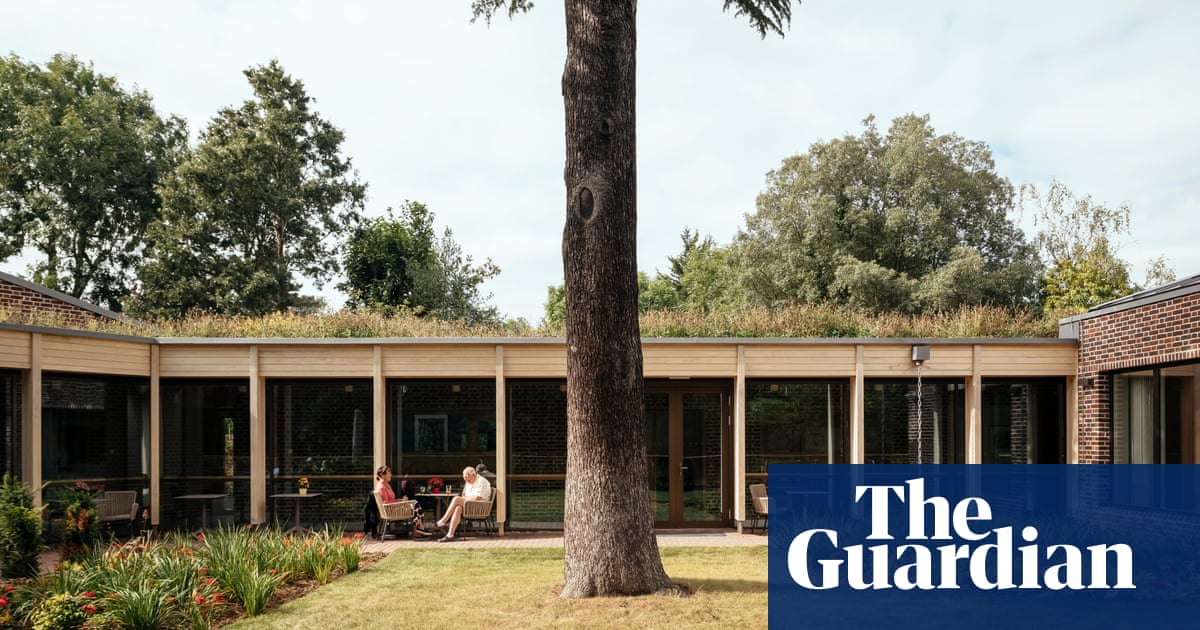
Six hundred years after it was founded as a hostel for Benedictine student monks, Magdalene College in Cambridge has scooped the RIBA Stirling prize for best new building in the UK – for a library designed to last for another four centuries.
Standing next to the 17th-century Pepys Library, the cramped study spaces of which it replaces, Magdalene’s new building has a timeless air. Fronting on to the fellows’ garden with a row of tall brick chimneys and pitched gables, it looks as if it might have time-travelled from the college’s Tudor past, only transposed through a stripped, modernist lens. Its redbrick walls and projecting oak bay windows nod to the medieval college courts, while the interior unfolds as a 3D lattice of bookshelves and cosy reading nooks.
The college beat off competition from an arts and community centre, a primary school, an office block, a housing scheme and a further education college to take this year’s Royal Institute of British Architects award.
The library is a building where everything you see is doing its job, all impeccably built by contractor Cocksedge, with load-bearing brick walls and cross-laminated timber floors, held on chunky glulam wooden beams. There is no paper-thin cladding, so ubiquitous in contemporary construction. This is solid stuff, built to last. Until 2400, at least.
“The overarching commitment to build something that will stand the test of time can be felt in every material and detail, and from every viewpoint,” said the RIBA president Simon Allford, chair of the Stirling prize jury. “This is the epitome of how to build for the long-term.”
It is the work of Níall McLaughlin, an Irish architect based in London who has been shortlisted for the award on three previous occasions. In 2013 he made the list with an oval stone jewel of a chapel for Ripon College Cuddesdon, near Oxford. He was back in 2015 with a block of biscuity brick flats for Peabody in east London, and again in 2018 with a temple-like lecture theatre for Worcester College, Oxford. All show McLaughlin’s deft ability to craft structures that are deferential to their context without succumbing to pastiche, being entirely of their time. It is a knack that has made him a favourite with Oxbridge clients: he has 15 projects for the illustrious colleges built or under way. And Magdalene library is his best yet.
“A thicket of books,” is how McLaughlin has described the building. Students enter into a triple-height space, where they encounter a great grove of brick columns, supporting a branching framework of wooden decks and shelves that rise up into something of a forest canopy of learning, above an art gallery and archive. This sylvan structure, generated by a repeated module of square rooms, creates a wide variety of reading and working spaces.
There is a long refectory-like communal table, reminiscent of a medieval mead hall, along with more solitary cubby holes tucked away in corners, all surrounded by walls of books. It caters to all tastes, from extrovert to recluse. One desk even projects right out into the middle of the triple-height void, on show from all sides. It’s known as the “prima donna desk”, for the student who wants everyone to know they’re studying.
“Students come to the library so they can work separately but together,” said deputy librarian Tom Sykes. “It’s motivating to see other people working, but you also need to be able to concentrate, or hide away. This building provides a wonderful mix of spaces, so there’s something for everyone.”
Daylight floods in through a grid of vaulted rooftop lanterns, making the building feel like an airy pavilion in the garden, with views out to the ancient yew trees. Natural ventilation is provided by the brick chimneys, fresh air drawn in through arrow-slit ventilation flaps by the window seats; these open to give a glimpse of the river beyond.
On winning the prize, McLaughlin was quick to praise the collective effort. “The library is a work of many hands and many minds,” he said. “The college created the possibility for success in the way that they initiated and managed the project. The appointment of designers, consultants, builders and craftsmen was treated with care. Throughout the development process, our team was supported and robustly questioned in our decisions.”
It seems fitting that a plaque in the entrance is inscribed with the Latin words “faber sum” – I am a craftsman – acknowledging the skill of the many artisans who brought this spellbinding place to life.












